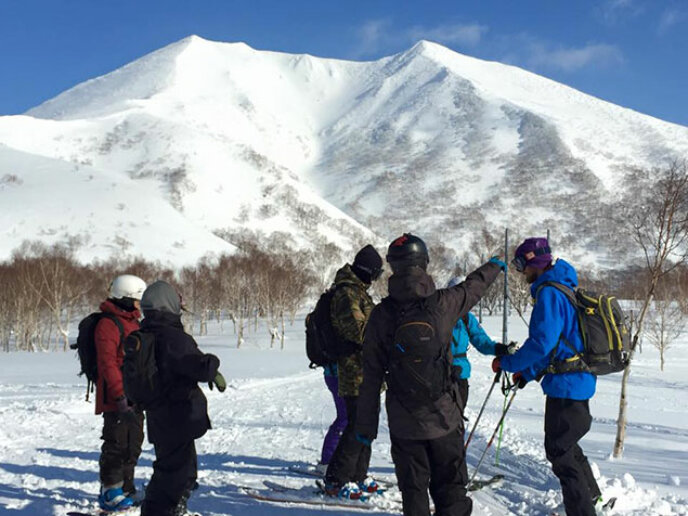7 “Musts” for Heading out the Niseko Gates
The accessibility of the Niseko backcountry and sidecountry via a series of gates is one of the most attractive features of the resort.
Over the years Niseko has garnered plenty of attention as one of the world’s best powder skiing destinations. One of its biggest draw cards is the easy access to its sidecountry and backcountry – reached by entering one of the nine gates that have been set up around the Niseko United resorts.
Once you have passed through the gates, you are officially outside the resort and responsible for your own safety. Here are our 7 “musts” for heading out of the Niseko gates:
1. Check the Niseko avalanche report
The Niseko Avalanche Report is posted online every morning before the resort opens, and is also displayed at each of the gates. It’s a must read for anyone heading through the gates.
2. Have the right gear and know how to use it
It is highly recommended that you take avalanche gear (beacon, shovel, probe) with you when heading into the Niseko sidecountry/backcountry. It’s equally important that you know how to use it.
Black Diamond Tours run Avalanche Skills Training (AST) courses that will teach you how to reduce the risks in the backcountry and operate your equipment should an avalanche occur. Rhythm Snowsports have backcountry gear available to rent or buy.
You should also prepare for all scenarios. Wear suitable clothing (quality layers are best) and pack an extra layer, water, snacks and a mobile phone.

GoSnow offer half day, full day and 5 day powder guiding tours, which includes avalanche safety gear and instructions on how to use it. Image: powdershotsniseko.com
3. Never head out alone
Riding alone in the sidecountry or backcountry is the fastest way to get yourself into serious trouble. Don’t even consider it. Find a friend, preferably a bunch of them, and head out together. You’ll be able to look out for each other in the event that something goes wrong (avalanche gear is useless if there’s no one there to use it), and you’ll have someone to back you up when you’re telling the whole bar about the bottomless turns you had later that night.
4. Have the ability
The Niseko backcountry is not the place to master the falling leaf or the wedge christie. Only advanced riders who can handle snow conditions of any kind should venture out. Niseko can throw up some extremely challenging conditions and often goes from clear blue skies one minute, to wild winter storms the next.
Luckily, Niseko has some of the best in-bounds skiing areas for those wanting an introduction to off-piste riding. Try Hirafu’s Miharashi for some seriously deep, dry turns.
5. Know the emergency contact numbers
There are emergency contact numbers for each of the resorts in the Niseko United area (Hirafu/Hanazono, Niseko Annupuri, Niseko Village, Moiwa). Have theme saved in your phone. Click here for the most-up-to-date numbers.
6. Be familiar with the area (or go with a guide)
At least one person in your group should have a good knowledge of the area you’re riding. Cloudy, foggy conditions can make it very difficult to find your way around. Have a plan and make sure it has been communicated with the entire group.
If you’re new to the area it’s always best to hire a professional guide. GoSnow offer half day, full day and 5 day powder guiding tours, which includes avalanche safety gear and instructions on how to use it. Their English-speaking, qualified guides will make sure you get the best out of the Niseko backcountry and also give you some great tips for riding in powder.
7. Read the Niseko rules
The Niseko Rules exist to ensure that everyone enjoys gets the most out of the legendary Niseko conditions while staying safe at the same time. The Niseko patrol do everything they can to open up backcountry/sidecountry areas to skiers and boarders in search of fresh snow, so there’s no excuse for ducking ropes or skiing in prohibited areas.
Have a fantastic time outside the Niseko gates. We hope you stay safe and get as lucky as this guy!
